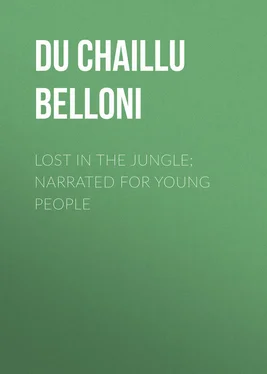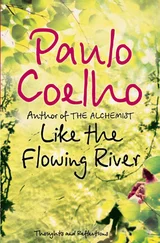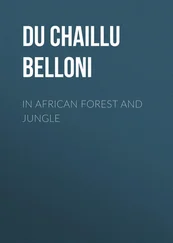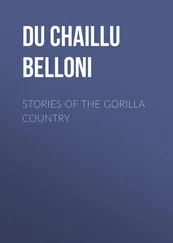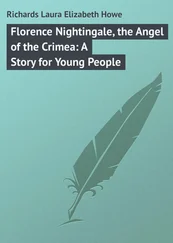Paul Du Chaillu - Lost in the Jungle; Narrated for Young People
Здесь есть возможность читать онлайн «Paul Du Chaillu - Lost in the Jungle; Narrated for Young People» — ознакомительный отрывок электронной книги совершенно бесплатно, а после прочтения отрывка купить полную версию. В некоторых случаях можно слушать аудио, скачать через торрент в формате fb2 и присутствует краткое содержание. Жанр: foreign_antique, foreign_prose, Путешествия и география, на английском языке. Описание произведения, (предисловие) а так же отзывы посетителей доступны на портале библиотеки ЛибКат.
- Название:Lost in the Jungle; Narrated for Young People
- Автор:
- Жанр:
- Год:неизвестен
- ISBN:нет данных
- Рейтинг книги:4 / 5. Голосов: 1
-
Избранное:Добавить в избранное
- Отзывы:
-
Ваша оценка:
- 80
- 1
- 2
- 3
- 4
- 5
Lost in the Jungle; Narrated for Young People: краткое содержание, описание и аннотация
Предлагаем к чтению аннотацию, описание, краткое содержание или предисловие (зависит от того, что написал сам автор книги «Lost in the Jungle; Narrated for Young People»). Если вы не нашли необходимую информацию о книге — напишите в комментариях, мы постараемся отыскать её.
Lost in the Jungle; Narrated for Young People — читать онлайн ознакомительный отрывок
Ниже представлен текст книги, разбитый по страницам. Система сохранения места последней прочитанной страницы, позволяет с удобством читать онлайн бесплатно книгу «Lost in the Jungle; Narrated for Young People», без необходимости каждый раз заново искать на чём Вы остановились. Поставьте закладку, и сможете в любой момент перейти на страницу, на которой закончили чтение.
Интервал:
Закладка:
At last he stood before us at a distance of six yards. Once more he paused, and Gambo and I raised our guns as he again began to roar and beat his chest, and just as he took another step forward, we fired, and down he tumbled, almost at our feet, upon his face – dead. But he was not the white gorilla .
How glad I was. I saw at once that we had killed the very animal I wanted. His height was five feet nine inches, measured to the tip of the toes. His arms spread nine feet. His chest had a circumference of sixty-two inches. His arms were of most prodigious muscular strength. His hands, those terrible, claw-like weapons, almost like a man's, having the same shaped nails, and with one blow of which he can tear out the bowels of a man and break his ribs or arms, were of immense size. I could understand how terrible a blow could be struck with such a hand, moved by such an arm, all swollen into great bunches of muscular fibres.
When I took hold of his hands, I shall not say in mine, for his were so large that my hands looked like those of a baby by the side of his. How cold his hands were, how callous, how thick and black the nails, as black as his face and skin. What a huge foot he possessed! Where is the giant that could show such prodigious feet?
We disemboweled the monster on the spot. Malouen and Querlaouen, who had heard our guns, joined us, and we built a camp close by. My three fellows were very fond of gorilla's meat, and they had a great treat. The brain was carefully saved by them.
In the evening Gambo told us some stories, one of which, the last one, I will relate to you. It relates to the leopard, and goes to prove that this ferocious animal has no friend.
Coniambié was a king, who made an orambo (a trap) in which a ncheri (gazelle) was caught. After it had been caught, it cried and called for its companion; then a ngivo (another gazelle) was caught. The ngivo cried, and a wild boar came and was caught; then an antelope came, and was caught; afterward a bongo and a buffalo came, and all were caught, and all of them died in the trap. At that time Coniambié was in the mountains. A leopard was caught also, but did not die. Then came a turtle, who released the leopard from the trap. Then the leopard wanted to kill the turtle which had saved him. The leopard got hold of the turtle to kill it, but the turtle, seeing this, drew her head, legs, and tail inside her shell, but not before she had managed to get into the hollow of an old tree, with the leopard after her in the hollow, and he could not get away. The tree is called ogana, and bears a berry on which monkeys are fond of feeding. So there came to the tree at this time, for the purpose of feeding, a miengai, or white-mustached monkey; a ndova, the white-nosed monkey; a nkago, the red-headed monkey; an oganagana, a blackish monkey; a mondi, which has very long black hair; a nchegai and a pondi, who all came to eat the berries. When the leopard heard the noise of the monkeys, he shouted, "Monkeys, come and release me!" Then they came and helped the leopard out of the hole. But the leopard, instead of being grateful, fought with the monkeys, and ate the nkago and the ndova. Then the monkey called a mpondi said, " Mai! mai! That is so; that is so! You leopards are noted rogues. The leopard and the goat do not live together at the same place. We came to help you, and, as soon as you were helped, you began to kill us. Mai! mai! you are a rogue."
Moral.
The reason why the leopard wanders solitary and alone is on account of his roguery; he is not to be trusted. There are men who can not be trusted any more than the leopard.
We shouted with one voice, "That is so; there are men who can not be any more trusted than the leopard, for they are so treacherous and deceitful."
Then we canvassed the bad qualities of the leopard, and concluded that he had not a single friend in the forest.
After this story was concluded we gave another look to our fires, and then went to sleep. This was the way, Young Folks, we spent many of our evenings when we were not too tired traveling in the great forest.
CHAPTER VII
RETURN TO THE OVENGA RIVER. – THE MONKEYS AND THEIR FRIENDS THE BIRDS. – THEY LIVE TOGETHER. – WATCH BY MOONLIGHT FOR GAME. – KILL AN OSHENGUI.
After wandering through the forest for many days, we reached once more the banks of the River Rembo Ovenga, the waters of which had fallen twelve or fifteen feet, for we are in the dry season. The numerous aquatic birds and waders which come with the dry weather give the river a lively, pleasant appearance. The white sand which lines many parts of the shore is beautiful. The mornings are cool, and sometimes foggy. The dark green of the well-wooded banks had something grand about it. I, poor and lonely traveler, had a charming scene before me. The stream is still yellow, but far less so than in the rainy season. Then the rains were driving down a turbulent tide laden with mud washed down from the mountains and valleys; now the waters roll on placidly, as though all was peace and civilization on their borders.
New birds had come. The otters were plentiful, and fed on the fish that were thick in the stream.
In that great jungle beasts had been scarce for some time, and we had a hard time to get food.
But what a glorious time we had by ourselves in that forest! Oh how I enjoyed rambling in that jungle, though toiling hard, and often hungry and sick! How glad I always was when I returned to the banks of the Rembo Ovenga! I loved that river, for I knew that its waters, as they glided down, would disappear in that very ocean whose waves bathed the shores of both the Old and the New World. At times, when seated on its banks, I could not help it, I would think of friends absent, but dear to me. I remembered those I loved – I remembered the boys and girls who were slowly but surely growing men and women, but who were still young folks in my memory, though years were flying fast. The lad of the jungle had become a man also; his mustache had made its appearance, and had grown a good deal; his face had become older – probably he found it so when perchance he gazed in the looking-glass he carried with him. Disease, anxiety, sleepless nights, and traveling under the burning sun had begun to do their work; but, in despite of all, my heart was still young, and I loved more than ever those friends I had left behind.
I had come back to Obindji to see if I could get some plantains or smoked cassada, and then intended to return to the woods in search of new animals and new insects. King Obindji welcomed me, and was delighted to see Malaouen, Querlaouen, and Gambo once more, and his wives got food ready for us. Then we started again for the forest. I took with me lots of small shot of different sizes for birds, and once more we would get lost in the jungle, but from time to time we would come back to the uninhabited banks of the wild Ovenga to look at our river.
One day, wandering in the forest, I spied a queer-looking bird I had not seen before, and I immediately got ready to chase it. This bird was called by the natives the monkey-bird ( Buceros albocrystatus ).
As I was looking at that queer bird I spied a monkey, two monkeys, three monkeys, four, five, six, ten monkeys. These monkeys looked very small, and were called oshengui by the natives. Then I saw more of the queer birds, and lo! I perceived they were all playing with these little monkeys – yes, playing with these oshenguis.
Strange indeed they looked, with their long-feathered tail, queer-looking body, and strange big beak. They followed those little monkeys as they leaped from branch to branch; sometimes I thought they would rest on the backs of the monkeys, but no, they would perch close to them, and then the monkey and the bird would look at each other. I never heard a note from the birds – they were as silent as the trees themselves. The oshengui would look at them and utter a kind of kee, kee, kee, and then they would move on, and the birds would follow.
Читать дальшеИнтервал:
Закладка:
Похожие книги на «Lost in the Jungle; Narrated for Young People»
Представляем Вашему вниманию похожие книги на «Lost in the Jungle; Narrated for Young People» списком для выбора. Мы отобрали схожую по названию и смыслу литературу в надежде предоставить читателям больше вариантов отыскать новые, интересные, ещё непрочитанные произведения.
Обсуждение, отзывы о книге «Lost in the Jungle; Narrated for Young People» и просто собственные мнения читателей. Оставьте ваши комментарии, напишите, что Вы думаете о произведении, его смысле или главных героях. Укажите что конкретно понравилось, а что нет, и почему Вы так считаете.
